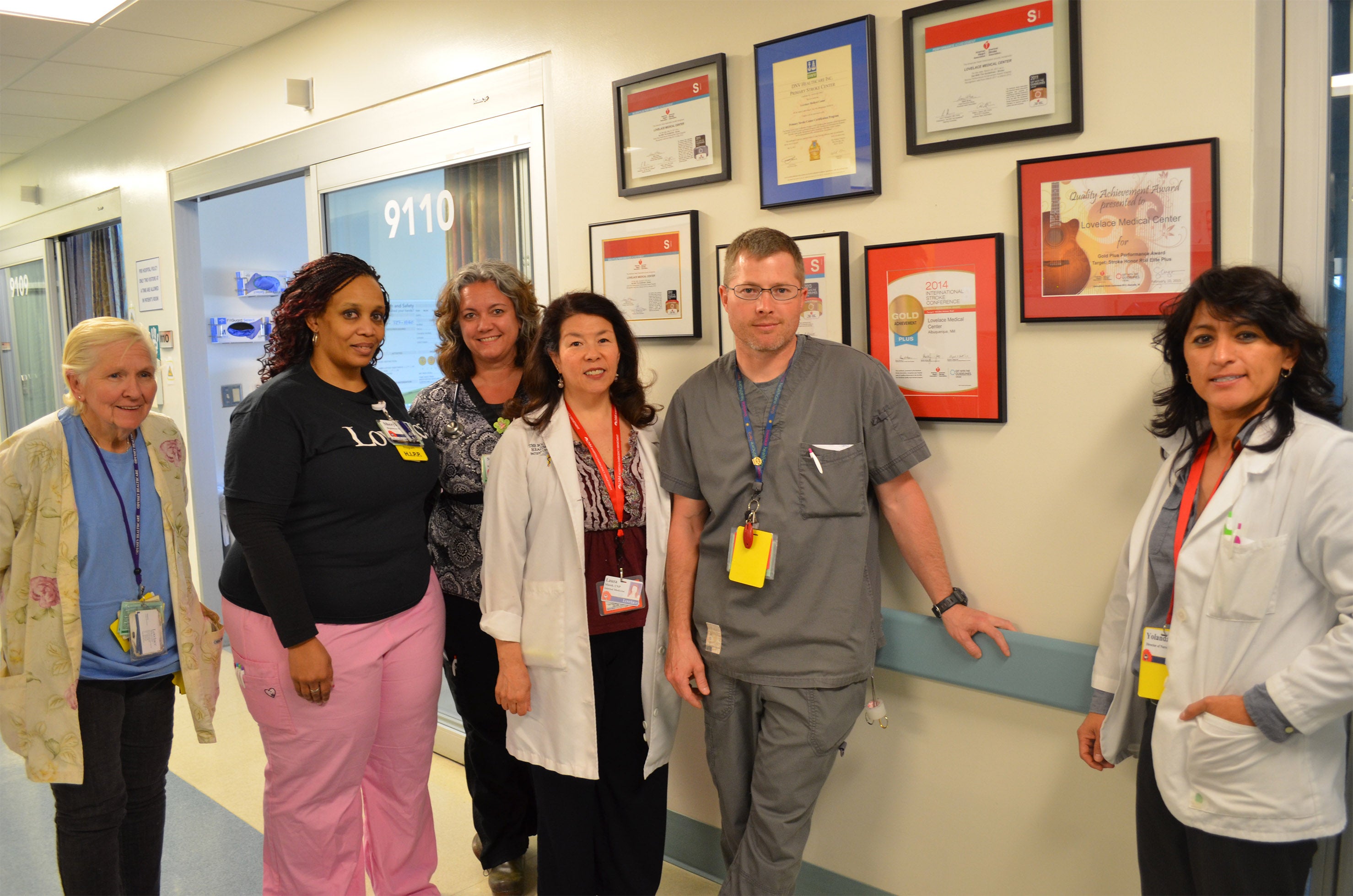
A stroke can strike with little to no warning and when it does, time is brain. When you suffer an ischemic stroke, oxygen-rich blood can be blocked from reaching parts of the brain. If the blood flow is not restored, affected areas of the brain are damaged, resulting in a loss of function of other parts of the body controlled by the damaged part of the brain. This loss of function can either be mild or severe, temporary or permanent. That is why it is critical for stroke patients to seek treatment as soon as possible.
It is also why the American Heart Association launched Target: Stroke, an initiative to improve the treatment of ischemic stroke by reducing the time between patients entering the hospital and receiving medication, known as tPA, that can potentially reverse the damaging effects of stroke. Lovelace Medical Center’s Stroke Team was recognized this year with the Target: Stroke Honor Roll - Elite Plus for their work to efficiently and effectively treat ischemic stroke patients.
“We treat 100 percent of our qualified tPA patients,” explains Lovelace Medical Center Stroke Unit Nurse Director Yolanda Alcantar, “Our team meets door-to-needle times at 60 minutes or less at 100 percent of qualified candidates and 75 percent door-to-needle at 45 minutes or less, which exceeds the national average.” Door-to-needle time refers to the administration of the FDA-approved drug to treat the majority of ischemic stroke patients, tPA.
What is tPA?
tPA is a medication that is commonly referred to as a “clot buster” to treat ischemic strokes, which constitute about 80 percent of all strokes. Ischemic strokes are most often caused by a blood clot preventing blood flow to the brain. When given within 60 minutes of arrival to the hospital (within three hours of the onset of symptoms) patients who have suffered an ischemic stroke and are qualified for tPA treatment can receive the medication to help restore blood flow to the brain and may help to reduce permanent damage. However, tPA is not recommended for all ischemic stroke patients, based on the time that has passed since the onset of symptoms and other existing medical conditions.
Lovelace Stroke Team’s Matthew Rich, RN, shares what the Target: Stroke Honor Roll recognition means to the team. “I believe this recognition validates all the hard work we have put in, as a team, to provided the best, fundamentally sound and evidence based stroke care to ensure our patients achieve the best outcome possible,” he says.
Each year, nearly 800,000 Americans suffer a stroke and 130,000 die as a result. Stroke does not discriminate, as anyone at any age may suffer a stroke. It is the leading cause of long-term disability in our country. “Lovelace Medical Center recognizes the need to provide our stroke patients with the highest level of care and has invested heavily to ensure that care is provided,” shares Rich. “This recognition means that we are Albuquerque's premiere stroke hospital. Our medical staff understands the very specific needs of stroke patients and we are prepared to meet those needs all day, every day. Our stroke patients get the best care because that is what we provide.”




